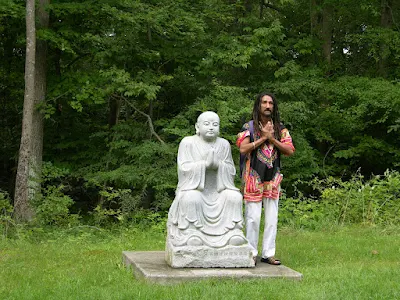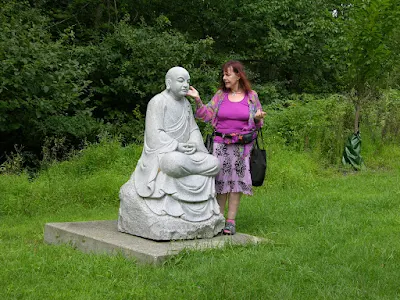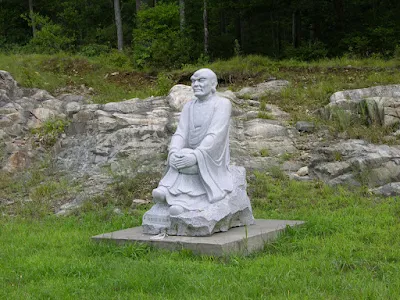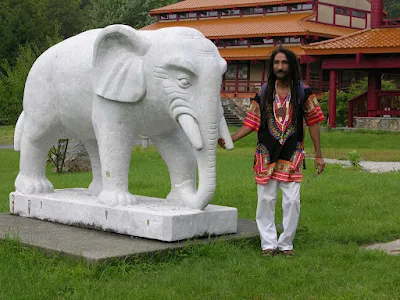20 Essential Chinese Novels | Bachelor's Degree Online
These are worth a look with a contemporary and classical mix.
One of my personal favorites not listed here is the Buddhist Tale of Monkey King with drawings and text.
Below is an abbreviated story line to the famous work, "Monkey King", known to the Chinese as "Journey to West",written by Wu Ch'eng-en (1500?-1582), a scholarly-official, is one of the renowned classical Chinese story about an allegorical rendition of the journey, mingled with Chinese fables, fairy tables, legends, superstitions mixed with popular beliefs, and includes stories about the Taoist and Buddhist religions. It was based on a true story of a famous Chinese monk, Xuan Zang (602-664). After years of trials and tribulations, he traveled on foot to what is today India, the birthplace of Buddhism, to seek for the Sutra, the Buddhist holy book. When he returned to China or the Great Tang as was called that time, he began to translate the sutras into Chinese, thus making a great contribution to the development of Buddhism in China. Monkey King is an indeed rebellious extraordinary being, born out of a rock and fertilized by the grace of Heaven. A being extremely smart and capable, he learns all the magic tricks and gongfu from a master Taoist and is able to transform himself into seventy-two different images such as a tree, a bird, a beast of prey or a bug as small as a mosquito to enable him to sneak into an enemy's belly to fight him inside or out. Using clouds as a vehicle he can travel 180,000 miles in a single somersault and he wields a huge iron bar that serves as ballast of the seas and can expand or shrink at his command. This becomes his favorite weapon in his later battles. He claims to be the king in defiance of the only authority over heaven, the seas, the earth and the subterranean world -- Yu Huang Da Di, or the "Great Emperor of Jade" in Chinese. To declare himself as emperor is an act of high treason, coupled with complaints from the masters of the four seas and the hell, he invites the relentless scourge of the Heavenly army.
After many showdowns,the emperor offers the monkey an official title to appease him. Enraged he revolts, fighting his way back earth to resume his claim of his own kingdom after learning that the position he held was nothing but that a stable keeper. Eventually, the heavenly army subdues him after many battles and with the help of all the god warriors.
Having a bronze head and iron shoulders, all methods of execution fail and the monkey man dulls all swords used upon him. As a last resort, the emperor commands that monkey king be burned in the furnace where his Taoist minister Tai Shang Lao Jun refines his pills of immortality. Instead of killing him, the fire and smoke add fiery golden crystal eyes that can see through what people normally can not. He frees himself and fought his way down again. Finally, with Buddha's help the monkey was suppressed under a great mountain known as the Mount of Five Fingers and could no longer move. Five hundred years later, ,the Tang Monk, Xuan Zang, came to his rescuer.
The Monkey King became the disciple of the monk and escorst him to insure that he could bring the sutras to the west. He travels with two other disciples, actually also arranged by the Buddha. Here begins the four's stormy journey west which is packed with actions and adventures that brought into full play the puissance of the monks' disciples, the Monkey King in particular.
The story of Journey to the West is divided into three parts: (1) an early history of the Monkey spirit; (2) pseudo-historical account of Tripitaka's family and life before his trip to fetch the sutras in the Western Heaven; (3)the main story, consisting of 81 dangers and calamities encountered by Tripitaka and his three animal spirit disciples - Monkey, Pigsy, and Sandy. The average readers are fascinated with the Monkey King, all prowess and wisdom, while many critics agree that the protagonist embodies what the author tried to convey to his readers: a rebellious spirit against the then untouchable feudal rulers. This story has the appeal of the ages with its moral thrust and pictures.
Adapted from HaiWang Yuan, Western Kentucky University
On another note keeping in the Chinese vein, yesterday I visited Chuang Yen Monastery in Carmel NY where after some meditation I received the gift of books and shared lunch with the monks. Here are some photos.
Below are people giving the service to keep up the grounds.
They call this the temple of a thousand Buddhas for a reason - you think?



















